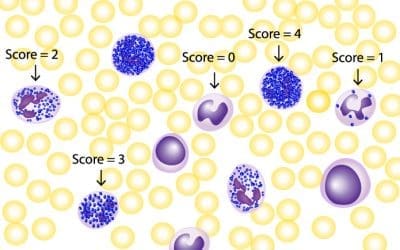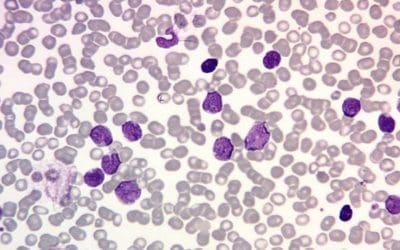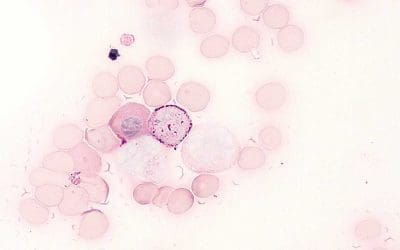Sjögren’s syndrome: An autoimmune disease causing dry eyes, mouth. Systemic effects is possible. Early diagnosis & management are key.
Waldenström Macroglobulinemia
Waldenström Macroglobulinemia (WM): Rare lymphoma, excess IgM. Causes fatigue, neuropathy, & hyperviscosity. Early diagnosis & tailored treatment are key.
Dendritic Cells
Dendritic cells (DCs) process antigens & present them to T cells, triggering immune responses.
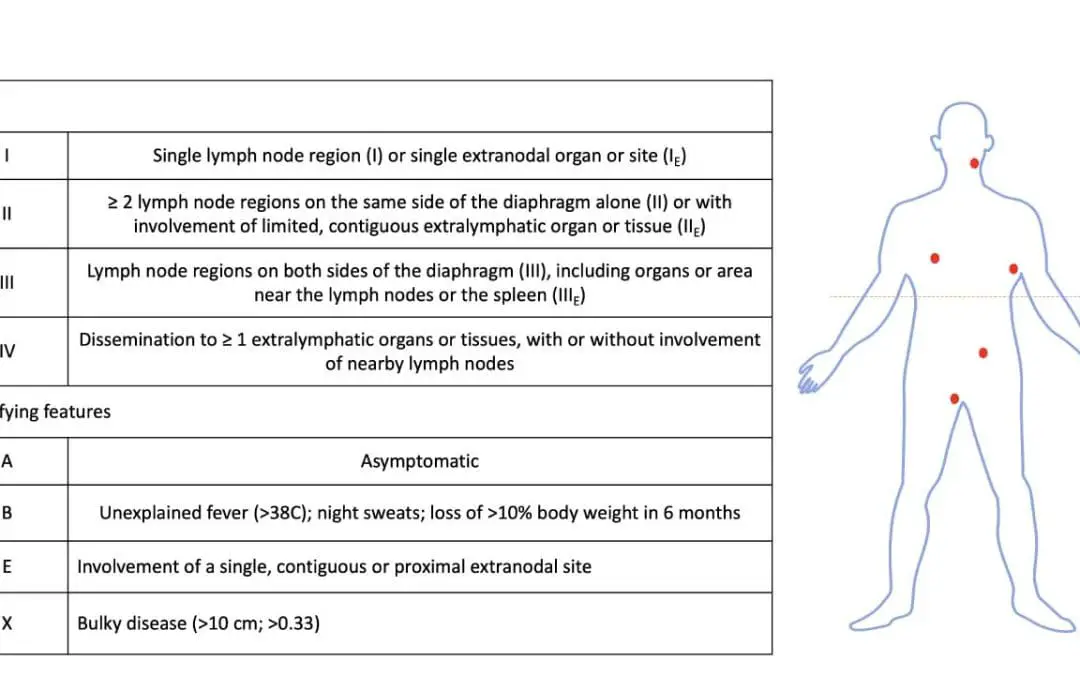
Classic Hodgkin Lymphoma Treatment Strategies
Hodgkin lymphoma explained: treatment, stages, and what to expect. Your guide based on the latest NCCN recommendations.
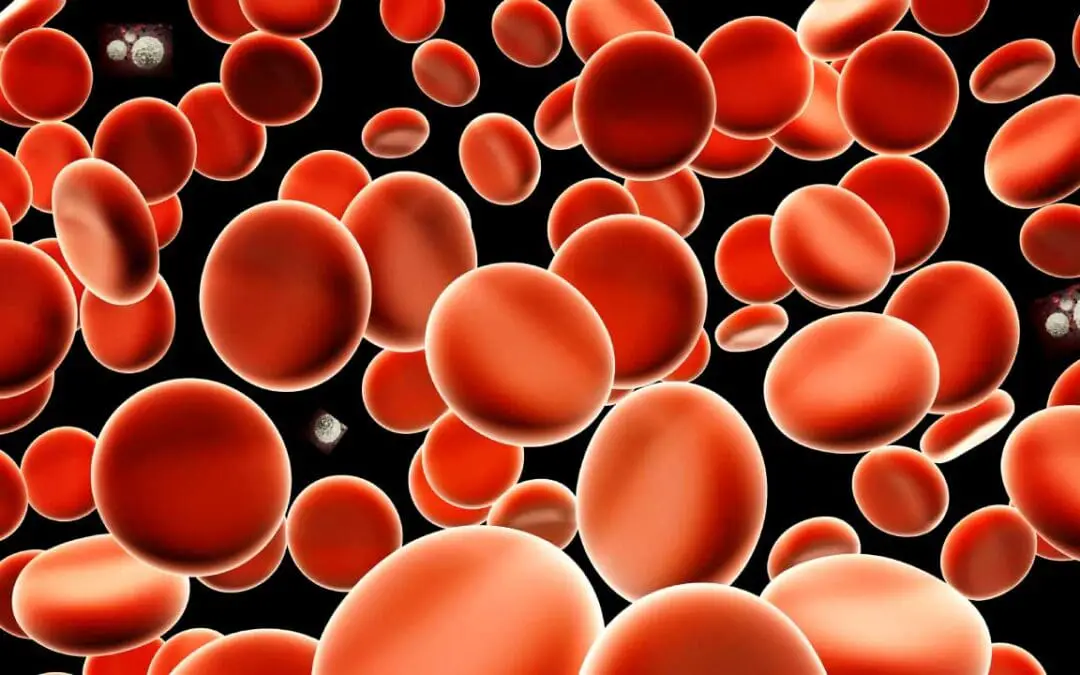
Causes of Polycythemia
Polycythemia has high red blood cell count. Learn causes, symptoms (headache, fatigue), diagnosis (CBC, EPO), and treatment options.

Lymphopenia or Low Lymphocytes
Lymphopenia is a low lymphocyte count, weakening immunity. It increases infection risk and flags underlying issues like cancer or severe illness.
Leukocyte/Neutrophil Alkaline Phosphatase (LAP/NAP) Stain
The NAP stain is used to differentiate between granulocytes and agranulocytes based on their naphthol AS-D chloroacetate esterase (NASD-CE) enzyme activity.
T-Cell Acute Lymphoblastic Leukemia or T-Cell ALL
T-cell acute lymphoblastic leukemia (T-ALL) is a subtype of acute lymphoblastic leukemia (ALL), caused by uncontrolled growth of immature T cells.
B-Cell Acute Lymphoblastic Leukemia (B-cell ALL)
B-cell acute lymphoblastic leukemia (B-ALL) is a fast-growing cancer of the immature B cells in the bone marrow.
Periodic Acid Schiff Stain (PAS Staining)
PAS stain is a histochemical technique that utilizes periodic acid-Schiff (PAS) reagent to detect and visualize carbohydrate-rich structures in cells and tissues, such as glycogen, glycoproteins, and mucins.
Multiple Myeloma
Multiple myeloma (MM) is a blood cancer that affects plasma cells. Plasma cells produce antibodies that help fight infection. In MM, plasma cells become abnormal and grow uncontrollably. This can lead to bone pain, anemia, and other complications.
Myeloperoxidase Reaction (MPO) Stain
A stain mainly used to differentiate AML from ALL and gives a bluish to brownish tinge in cells with lysosomal enzyme.

